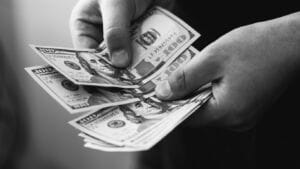If our current economic situation feels familiar, that’s because it’s not unlike recessions we’ve experienced in the past. The continued spread of COVD-19 has slowed economies around the world.
The recessions cause may be different this time around, but its consequences to consumers are the same: disrupted income, growing debt, and widespread uncertainty. Nothing highlights the importance of financial hygiene like a recession.
While that may sound intimidating, there are a few simple things you can do that will help immensely. Through this article, you’ll learn how to secure your finances no matter your economic circumstances. Here are six things you can do:
Spend Cautiously
A slow economy is not the time to start spending with impunity. Build up your savings by cutting down on unnecessary spending, such as meals out and online shopping. You also want to rule out making large purchases, like a house or a new car, for the time being.
Although mortgages are often considered “good” debt, the best approach in a recession is to avoid all new debt. Use your debit card in place of credit. If your car dies, buy a used one in cash rather than a new one on credit.
If you struggle to stay within your budget, get a prepaid card for each spending category. Load it with the amount you’ve budgeted for the month. Don’t reload it until the next month rolls around.
You’re less likely to overspend when there’s a defined endpoint to what’s in your account. Limiting your spending to necessities can go a long way toward keeping your finances safe.
Pay Off Your Debts
Even if you avoid taking on new debt during a downturn, chances are good you have existing debts. Pay them down as best you can.
Rank your debts in order of their interest rates. For many people, it will make the most sense to start by paying off their credit cards. This type of debt usually has higher APRs than, say, a personal loan or a mortgage.
Once you’ve paid off one debt, move on the one with the next highest interest rate. Each time you do, roll the amount you were paying toward prior debts to your new target.
Also, consider renegotiating your debts. Now that interest rates have fallen, you may be able to secure a better rate through a balance transfer. Look into refinancing your mortgage, if you own your home.
Build a Rainy Day Fund
If you don’t have debt to pay off, put more of your income toward your savings. Having a robust rainy day account can prevent unexpected bills from sinking your ship.
Keep your rainy day fund separate from other savings accounts you might have. Marking it as specifically for emergencies will keep you from spending it before it’s needed.
Your goal? Enough savings to cover three to six months’ worth of living expenses. Realize you may need a year or more to amass that much money. Until you do, avoid making discretionary purchases like meals out.
Adjust Your Budget
Every household needs a budget. Knowing how much money you have at the end of every month puts you in control. The more control you have over your finances, the better able you are to protect them.
If you already have a budget, review where you could tighten it up a little. If you don’t have a household budget, create one now. You can use an Excel sheet, find templates online, or download a budgeting app to track your spending.
Monitoring your income and expenditures will help you live within your means. You’ll start to see small opportunities to save, such as cancelling streaming services you no longer use. Making even small adjustments to your budget can translate to hundreds or thousands of dollars saved in a few months’ time.
Diversify Your Income
While there’s no real way to be ready for sudden job loss, you can do things to soften the blow. Cutting spending, reducing debt, and increased savings can all help. Another thing to consider is adding additional income streams. Not only will you bring in more money, but you’ll also be less reliant on a singular source.
Find a way to diversify your income based on things you already do or assets you already have. If you own your home, could you rent out part of it as an Airbnb? If you have a car, could you drive for Uber or Lyft? Or, maybe you want to turn your “quarantine hobby” into a side hustle.
Whatever you do, don’t think of your extra income as “play money.” Either use it to pay down your debts or to bolster your emergency fund. If you’re tempted to spend, put extra income into CDs or other illiquid financial instruments.
If you have a partner, take them into the equation as well. Ideally, your spouse should not only work for a different employer than you do, but also in a different industry. The more baskets you can spread your financial eggs between, the better.
Keep an Eye on the Long Term
Recessions are notoriously difficult to predict. Nobody knows how long the current economic situation will last. Because of that unpredictability, it’s essential to prepare for the long haul.
Think back to your goals: Are you hoping to start a family? Would you like to go back to school? Do you want to travel the world? Create a savings fund specific to each goal. Like your emergency savings account, treat it as off limits except for its intended purpose.
Uncertain times may have you eyeing an existing retirement fund to pad your purpose-built savings account. Avoid the temptation. Otherwise, you may find yourself pushing back your retirement plans down the road.
Eventually the recession will end, and you’ll need savings for whatever is next. Do what you can to protect your finances. The steps you take now will get you through this rough patch. More importantly, they’ll secure your financial future no matter the market conditions.




